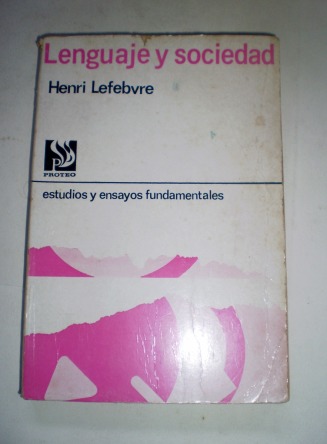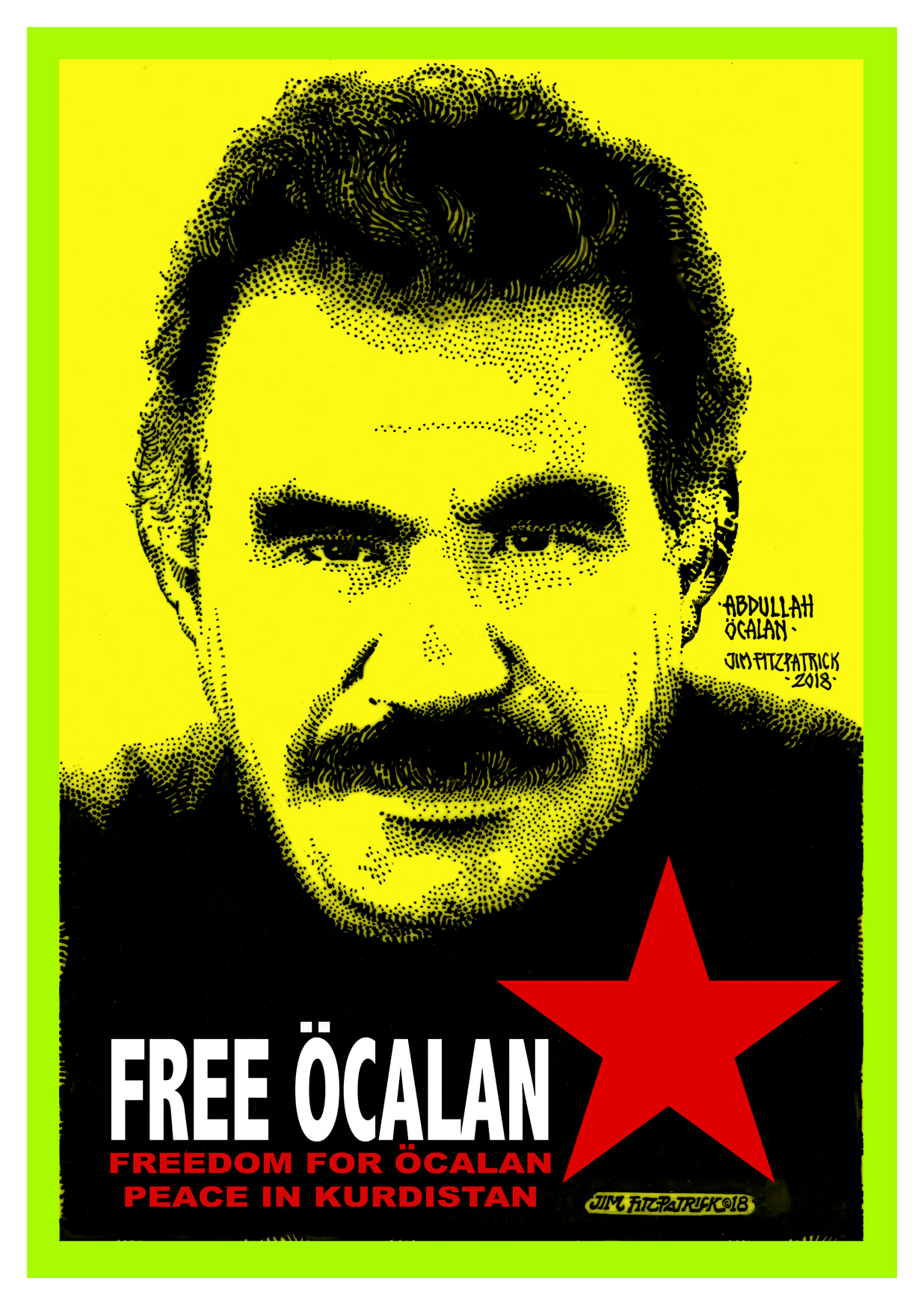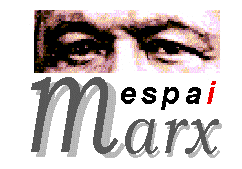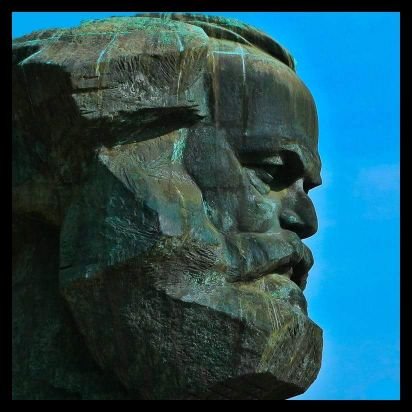Archivo
«Pensamiento y lenguaje en Hegel»: Evald Iliénkov
 Es evidente que, en tanto el pensamiento es entendido por Hegel no como una de las facultades psíquico-subjetivas del ser humano, sino como la estructura ideal del universo, este es realizado y se realiza no solo en el lenguaje, y no solo en el lenguaje halla su existencia inmediata (externa).
Es evidente que, en tanto el pensamiento es entendido por Hegel no como una de las facultades psíquico-subjetivas del ser humano, sino como la estructura ideal del universo, este es realizado y se realiza no solo en el lenguaje, y no solo en el lenguaje halla su existencia inmediata (externa).
Y es igual de evidente que, en lo tocante al proceso de autoconciencia que se realiza a través del pensamiento absoluto en la figura del sujeto, precisamente el lenguaje resulta la forma privilegiada de manifestación externa en la que dicho proceso comienza y acaba. Precisamente en el lenguaje el pensamiento finalmente regresa a sí mismo tras todos sus ciclos de alienaciones, hallando de nuevo aquél aspecto originario que poseía antes de su caída, antes de la formación de la naturaleza y de cualquier espíritu finito. Este pensamiento en-sí-y-para-sí empíricamente existente se presenta en forma de ‘Ciencia de la lógica’ o, más exactamente, en forma de lector que comprende adecuadamente dicha obra literaria. El conocimiento absoluto se abre al pensamiento, el cual de esta forma se convierte en pensamiento absoluto, como un sistema de significados de palabras que conforman en su conexión la expresión inmediata de la estructura universal del mundo, su esquema ideal. Leer más…
«Bajtín desenmascarado. Réplica a las críticas del libro»: Jean-Paul Bronckart y Cristian Bota
 La difusión de la obra Bakhtine démasqué, y de las dos traducciones publicadas, ha suscitado hasta ahora una veintena de recensiones (ver referencias en la bibliografía), que van desde el ataque virulento a la aprobación y al reconocimiento pasando por textos que compaginan reproches y comedidos homenajes, o simplemente se limitan a hacer un resumen de los hechos.
La difusión de la obra Bakhtine démasqué, y de las dos traducciones publicadas, ha suscitado hasta ahora una veintena de recensiones (ver referencias en la bibliografía), que van desde el ataque virulento a la aprobación y al reconocimiento pasando por textos que compaginan reproches y comedidos homenajes, o simplemente se limitan a hacer un resumen de los hechos.
Con este artículo respondemos a las críticas y contestamos sobretodo a los diversos reproches que se nos han hecho. Pero antes de exponer nuestras réplicas pensamos que será útil evocar las circunstancias que nos han llevado a realizar un trabajo de investigación cuyo resultado ha sido este libro, recordar las tres grandes cuestiones a las que hemos intentado dar respuesta, así como volver a formular las conclusiones obtenidas en nuestro trabajo sobre el estatus y la importancia de la concepción de los textos/discursos elaborada en la URSS entre los años 1920/1930.
LA GÉNESIS DE NUESTRAS PREGUNTAS Y DE LA INVESTIGACIÓN
Ambos (el uno y el otro, desde ahora, JPB y CB) trabajamos en el ámbito de las ciencias del lenguaje formando parte de un grupo de investigación creado y dirigido por JPB en la Universidad de Ginebra; un grupo que ha llevado a cabo trabajos de epistemología de psicología del lenguaje y de didáctica de las lenguas a partir de una perspectiva interaccionista básicamente inspirada en la obra de Vygotski.
«Lenguaje y sociedad»: Henri Lefevbre
 Publicada en 1967 (Gallimard, Paris), esta obra sintetiza una orientación original en los estudios actuales del lenguaje.
Publicada en 1967 (Gallimard, Paris), esta obra sintetiza una orientación original en los estudios actuales del lenguaje.
La lingüística moderna ha progresado en forma notable desde Ferdinand de Saussure con los métodos y las técnicas del estructuralismo. ¿Puede tomarse como modelo para las ciencias de la realidad humana y hasta para el conjunto de las ciencias?
Henri Lefevbre parte de una hipótesis: que preguntas y respuestas no pueden plenamente formularse desde el interior del lenguaje. Es conveniente ubicarse en un sitio de encuentro de la lingüistica con la sociología, y la investigación desemboca entonces en los problemas de la sociedad contemporánea. Leer más…
«Biological Determinism and Epistemology in Linguistics: Some Considerations on the «Chomskyan Revolution»»: Peter Jones
 Biological Determinism and Epistemology in Linguistics: Some Considerations on the «Chomskyan Revolution» [1]
Biological Determinism and Epistemology in Linguistics: Some Considerations on the «Chomskyan Revolution» [1]
«Given the molecular forces in a mutton chop, deduce Hamlet or Faust therefrom».[2]
0. INTRODUCTION
0.1 The aim of this paper is to take a critical look, from a broadly Marxist perspective, at the epistemological basis of Noam Chomsky’s theory of grammar and the implications of his work in linguistics for the human sciences in general.[3] At the very least this critique might help to explain the reasons why Chomsky’s views should be regarded as incompatible with Marxism, despite some recent claims (eg Newmeyer, 1986a,b). More importantly, I hope the discussion may show that Chomsky’s outlook on language poses a challenge not only to Marxism but to any discipline in which the social and historical are essential and irreducible categories in the understanding and explanation of human behaviour, institutions, and thought. For Chomsky uses his theoretical linguistic work, which has already had a profound influence on other disciplines, particularly philosophy and psychology (cf Salkie, 1990) as the ground on which to construct a rigid biological determinist ideology applied to all aspects of human behaviour and mental activity. The main thrust of my argument is that Chomsky’s biological determinism, like biological determinism in general, rests on an incoherent and self-contradictory epistemology and is an inadequate foundation for the human sciences, including linguistics. In view of these intended aims, I would like to think that what follows might be considered as a further contribution to the critique of biological determinism developed in Rose (ed) (1982) and Rose, Lewontin and Kamin (1990).
0.2 I do not claim any originality for philosophical opposition to Chomsky’s work and specifically Marxist criticism can be found elsewhere (eg Thompson, 1969; Luria, 1975; llyenkov, 1977c; Panfilov, 1979; and cf the discussion in Newmeyer, 1986a). What I hope to offer is a rather more fine-grained philosophical analysis of aspects of Chomsky’s approach along with a sketch of an alternative perspective which I will refer to as the Vygotskian tradition of Marxist research in psychology and linguistics.[4] While detailed scrutiny of the technical linguistic facts and arguments used to support Chomsky’s case would be out of place here, I will make one or two observations on the status and validity of such «evidence».
Since Chomsky has at the same time acquired an international reputation as a courageous, outspoken, and radical political thinker and commentator (cf Salkie, op.cit; Chomsky 1979, 1987b, 1989), the question inevitably arises of the connection between his linguistics and politics. Some writers consider both areas of his thought to be equally radical and progressive, eg Salkie (op.cit). I share the view that his scientific and political views have certain philosophical and ethical principles in common and, accordingly, I have raised some general questions on his attitude towards social and political theory. However, I shall not examine Chomksy’s political contribution in any detail, nor do I wish to denigrate that contribution in any way.
I should stress that not all linguists outside the Marxist tradition share Chomsky’s conception of language and mind. Some would challenge or reject outright the innatist framework of Chomskyan generativism (eg Sampson, 1975; Moore and Carling, 1982; Halliday, 1978; Harris, 1980) and there are many other linguists who, while working with Chomsky’s grammatical theory, would distance themselves from his biological determinism. Yet, there are few, if any, modern approaches to language which remain uninfluenced by Chomsky’s work and ideas. Whether or not Chomsky’s theoretical achievements amount to a revolution will not, however, be of concern here, although the question has generated some heat over the years (cf Koerner, 1983; Newmeyer, 1986b).
My plan of attack, then, is as follows: 1) an exposition of the key tenets of the Chomskyan doctrine on grammar, 2) an analysis of the epistemological foundations of this doctrine, 3) a critical appraisal of these foundations, and 4) a brief exposition of the Vygotskian alternative. Leer más…
«Vygotsky’s revolutionary theory of psychological development» Jeremy Sawyer
“It seems surprising that the science of psychology has avoided the idea that many mental processes are social and historical in origin, or that important manifestations of human consciousness have been directly shaped by the basic practices of human activity and the actual forms of culture.”
—Vygotsky’s colleague Alexander Luria 1
Prevailing ideas hold that human psychology originates in the isolated individual. Whether determined by genes, stimulus-response conditioning, or computer-like data processing modules, the dominant schools of psychology assume a historically static, lone individual as the starting point for investigation. From the hardwired “caveman brain” of evolutionary psychology, to the manipulative “reward and punish” tactics of pop behaviorism, these psychological doctrines are generally pessimistic about the possibility of progressive human change and transformation.
Fortunately, there is a scientific alternative that progressives can advance. The past few decades have seen a renewed interest in the life and work of Soviet psychologist Lev Vygotsky (1896–1934). Aspects of his work, most notably the “zone of proximal development” (ZPD), are now frequently taught within psychology, education, and special education programs (although applied only sporadically within today’s test-driven public schools). Although Vygotskian theory was conspicuously absent from my school psychology training program, when Vygotsky is taught, it is typically in piecemeal fashion, completely divorced from its revolutionary political roots. It would seem the Left has much to gain from examining and reestablishing this connection.
Leer más…
«Split or whole? The Status of Subject and Society in Voloshinov’s Work»: Patrick Seriot
 I would to highlight some key features in the history of a great misunderstanding: the reception of V. Voloshinov texts by left-wing Western European intellectuals in the 1970s, mainly in France. By doing so, I think it will be posible to show, by contrast, the specifity of Voloshinov’s work. Indeed, for French readers, familiar with M. Foucault’s idea of «the death of the subject», reading Voloshinov meant at the same time recognizing well-known topics (e.g. a theory of «ideology») and discovering a totally unknown universe. This discrepancy was enhanced by problems of translation, with different translator offering their readers a terminology which could make sense for them at this very period of intellectual discussions in Western Europe. The most striking example is probably the notion of «social psychology», which was immediately interpreted through the filter of L. Althusser’s notion of ideology as false consciousness, ehere the main stress was on the unconscious aspect of everything ideological, therefore uncontrollable.
I would to highlight some key features in the history of a great misunderstanding: the reception of V. Voloshinov texts by left-wing Western European intellectuals in the 1970s, mainly in France. By doing so, I think it will be posible to show, by contrast, the specifity of Voloshinov’s work. Indeed, for French readers, familiar with M. Foucault’s idea of «the death of the subject», reading Voloshinov meant at the same time recognizing well-known topics (e.g. a theory of «ideology») and discovering a totally unknown universe. This discrepancy was enhanced by problems of translation, with different translator offering their readers a terminology which could make sense for them at this very period of intellectual discussions in Western Europe. The most striking example is probably the notion of «social psychology», which was immediately interpreted through the filter of L. Althusser’s notion of ideology as false consciousness, ehere the main stress was on the unconscious aspect of everything ideological, therefore uncontrollable.
«The Language Question in Marxism: Brecht, Gramsci and Wittgenstein»: Wolfgang Fritz Haug
 The title pretends too much. The scope of my remarks is in a way quite modest. I want to show that in the creative laboratory of the twenties and early thirties there are innovative elements in Marxist thought of great theoretical productivity. These promising beginnings were prevented from developing by Stalinism, World War II and the subsequent Cold War period. My argument is, that some of these elements meet vital needs of Marxist thought today. This leads to the immodest side of my argument: Here I pretend that Marxist thought or the philosophical discourse of Marxism is in need of being reinvented. The various sedimented philosophies which occupy its field are disparate and at least partly dead. It is time to reinvent, because the time of the old mainstream-Marxisms has run out. This is one element of truth in post-marxisms. There is only one way to »win back« the initiative –which is to move on. We have had our doomsday. If we simply wait for resurrection it will fail to come. Philosophical action is wanted. However – and as ever – from academic philosophy is not much to be expected, though its potential of rationality defines standards which cannot be neglected. To recur to Brecht und Gramsci seems odd to the institutional philosophy. To recur to Gramsci at least does not seem odd at this marvelous conference. There are dozens of presentations and many panels where this is explicitely done. With Bertolt Brecht the case is different. As far as I have seen, the title of my presentation is the only one in which he figures.
The title pretends too much. The scope of my remarks is in a way quite modest. I want to show that in the creative laboratory of the twenties and early thirties there are innovative elements in Marxist thought of great theoretical productivity. These promising beginnings were prevented from developing by Stalinism, World War II and the subsequent Cold War period. My argument is, that some of these elements meet vital needs of Marxist thought today. This leads to the immodest side of my argument: Here I pretend that Marxist thought or the philosophical discourse of Marxism is in need of being reinvented. The various sedimented philosophies which occupy its field are disparate and at least partly dead. It is time to reinvent, because the time of the old mainstream-Marxisms has run out. This is one element of truth in post-marxisms. There is only one way to »win back« the initiative –which is to move on. We have had our doomsday. If we simply wait for resurrection it will fail to come. Philosophical action is wanted. However – and as ever – from academic philosophy is not much to be expected, though its potential of rationality defines standards which cannot be neglected. To recur to Brecht und Gramsci seems odd to the institutional philosophy. To recur to Gramsci at least does not seem odd at this marvelous conference. There are dozens of presentations and many panels where this is explicitely done. With Bertolt Brecht the case is different. As far as I have seen, the title of my presentation is the only one in which he figures.
«Lengua, lenguaje y política en Gramsci»: Francisco Fernández Buey
 Tutto il linguaggio è un continuo proceso di metafore, e la storia della semantica è un aspetto della storia della cultura: il linguaggio è insieme una cosa vivente ed un museo de fossili della vita e delle civiltà passate.
Tutto il linguaggio è un continuo proceso di metafore, e la storia della semantica è un aspetto della storia della cultura: il linguaggio è insieme una cosa vivente ed un museo de fossili della vita e delle civiltà passate.
[Quaderni del carcere, 11, p. 1438, 1932-1933]
1.
La preocupación de Antonio Gramsci por el tema de la lengua y los problemas lingüísticos ha sido una constante desde los escritos juveniles hasta las últimas notas de los Quaderni, en 1935, y sus últimas cartas. Esta preocupación está suficientemente documentada tanto para la época de L´Ordine Nuovo como en el caso de los Quaderni y las Lettere de la cárcel.
Algunos intérpretes de su obra, como Franco Lo Piparo y Tullio De Mauro, han subrayado en diferentes momentos la importancia que tuvo la formación universitaria torinesa de Gramsci, en tanto que lingüísta y filólogo, en la elaboración del conjunto de su obra y en la configuración de su pensamiento filosófico y político. El propio Valentino Gerratana ha avalado la consideración de que las reflexiones histórico-filológicas gramscianas, y en particular su concepción del lenguaje como actividad conformadora de sentimientos y creencias comunes en unos casos y de fracturas sociales en otros, tuvieron una importancia decisiva no sólo para la elaboración de una teoría de la cultura basada en la idea de reforma moral e intelectual, sino también en la conformación de la teoría de la hegemonía, que es el centro de la filosofía política del Gramsci maduro.
Creo que hoy en día tiene mucho interés volver a subrayar este aspecto de la obra de Gramsci, a saber: su voluntad de construir un lenguaje teórico y político nuevo, su voluntad de comunicación más allá de las jergas del especialista y de las fórmulas establecidas en el marco de una determinada tradición liberadora compartida.
«La poética de Lotman: Opacidades y transparencias»: Adolfo Sánchez Vázquez
 Si para caracterizar la obra de Yuri Lotman en una primera aproximación se nos preguntara qué se propone en sus investigaciones —particularmente en sus dos trabajos fundamentales: La estructura del texto artístico y Análisis del texto poético— y qué medios emplea para alcanzar lo que se ha propuesto, diríamos que se ha empeñado en resolver problemas planteados por el formalismo ruso, no resueltos a juicio suyo, y que para ello se ha valido de la contribución de los propios formalistas rusos y de los hallazgos de la lingüística estructural, la semiótica y la teoría de la información.
Si para caracterizar la obra de Yuri Lotman en una primera aproximación se nos preguntara qué se propone en sus investigaciones —particularmente en sus dos trabajos fundamentales: La estructura del texto artístico y Análisis del texto poético— y qué medios emplea para alcanzar lo que se ha propuesto, diríamos que se ha empeñado en resolver problemas planteados por el formalismo ruso, no resueltos a juicio suyo, y que para ello se ha valido de la contribución de los propios formalistas rusos y de los hallazgos de la lingüística estructural, la semiótica y la teoría de la información.
Del formalismo ruso a la semiótica
Como es sabido, la tarea central para los formalistas rusos era la búsqueda de la especificidad del lenguaje poético o de las cualidades intrínsecas del hecho literario (lo que Jakobson llamaría la literariedad). Su atención se concentraba por ello en el acceso intrínseco, inmanente a la obra literaria, descartando todo enfoque extrínseco (psicológico o sociológico). Para ellos, la obra sólo existía como forma, y por esto se descartaban los aspectos significativos o semánticos que constituían tradicionalmente el contenido. Lo que pasaba al primer plano era el problema de cómo está construida la obra y, por ello, como diría también Jakobson, el único héroe para la ciencia literaria era el procedimiento mediante el cual —o los cuales— se transforma el material verbal para que —como lenguaje poético— cumpla una función estética.
«Wittgenstein»: Andy Blunden
 No theory of human action, which necessarily includes the study of language and concepts within its scope, can go past the (later) work of Ludwig Wittgenstein, a renegade from Logical Positivism, who has provided an insider’s critique of the analytical approach to language and meaning. It is not so much that Wittgenstein provides any foundation or resource for a theory of action – he doesn’t – but to be viable a theory has to withstand a Wittgensteinian criticism. The aim of this reflection is to identify the questions which Wittgenstein swept under the carpet and to see what is needed to address these questions without transgressing the limits set by Wittgenstein.
No theory of human action, which necessarily includes the study of language and concepts within its scope, can go past the (later) work of Ludwig Wittgenstein, a renegade from Logical Positivism, who has provided an insider’s critique of the analytical approach to language and meaning. It is not so much that Wittgenstein provides any foundation or resource for a theory of action – he doesn’t – but to be viable a theory has to withstand a Wittgensteinian criticism. The aim of this reflection is to identify the questions which Wittgenstein swept under the carpet and to see what is needed to address these questions without transgressing the limits set by Wittgenstein.
What motivates this reflection is the need to ground a critique of the whole spectrum of interactionist approaches to the human science. By ‘interactionist’, I mean those approaches which eschew recourse to metaphysical claims, but aim to reconstruct the phenomena of human life on the basis of analysis of person-to-person interactions, generally without the aid of any substantial psychology or theory of ‘human nature’.
«Actividad lingüística y construcción de conocimientos»: Jean Paul Bronckart
En este artículo se refuta, en primer lugar, la posición de la tradición lógicogramatical según la cual el lenguaje sería tan solo un reflejo secundario de las estructuras cognitivas y, con apoyo de las obras de Humboldt, Coseriu y Saussure, se sostiene, por el contrario, que la actividad del lenguaje es creadora de las significaciones propiamente humanas. En el marco de la corriente de análisis textual proveniente de Voloshinov, se demuestra luego la existencia de “tipos de discurso”, cuyo rol decisivo es servir de interfaz entre las representaciones individuales y las representaciones colectivas.
Se postulan tres tesis sobre el desarrollo de los conocimientos: la interiorización de los signos de la lengua es la condición de la constitución de las unidades del pensamiento; la interiorización de las relaciones predicativas es la condición de la constitución de las operaciones cognitivas y el dominio de los tipos de discurso es la condición del desarrollo de las formas de razonamiento. En una advertencia final, tomando como base a Piaget, se concluye que, no obstante, los seres humanos tenemos la capacidad de desprendernos de las exigencias lingüísticas y socioculturales y que, por lo tanto, conviene evitar cualquier forma de reduccionismo social.


























